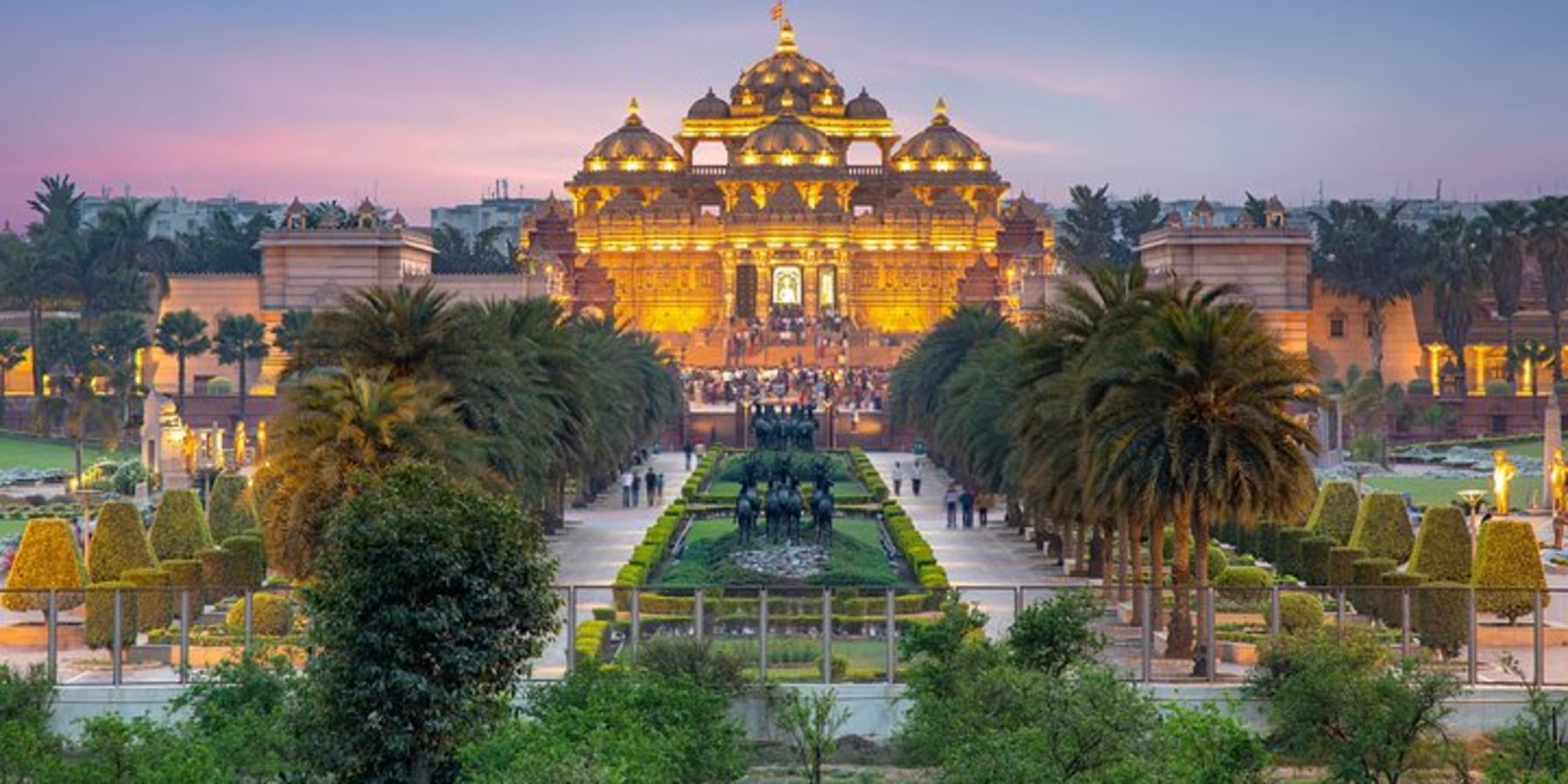
Delhi, the capital city of India, is a vibrant metropolis that encapsulates a rich tapestry of history, culture, and modernity.
Introduction: Delhi, situated in the northern part of India, stands as a testament to the country's diverse heritage and cosmopolitan character.
Historical Significance: Delhi has a storied past, serving as the capital of several empires, including the Mughals, the Delhi Sultanate, and the British Raj, each leaving an indelible mark on its landscape and culture.
Old Delhi: The heart of historical Delhi, Old Delhi, is a labyrinth of narrow lanes, bustling bazaars, and ancient monuments, including the majestic Red Fort and the Jama Masjid, one of the largest mosques in India.
New Delhi: Designed by British architects during the colonial era, New Delhi is characterized by wide avenues, government buildings, and grand boulevards, including the iconic India Gate and the Rashtrapati Bhavan, the official residence of the President of India.
Cultural Diversity: Delhi is a melting pot of cultures, languages, and traditions, with a vibrant mix of people from different regions and backgrounds contributing to its dynamic social fabric.
Cuisine: The city is renowned for its eclectic culinary scene, offering a tantalizing array of street food, Mughlai delicacies, and international cuisines, making it a paradise for food lovers.
Arts and Literature: Delhi has been a center of artistic and literary excellence for centuries, with thriving theatre, music, and literary scenes, as well as numerous art galleries and cultural institutions showcasing both traditional and contemporary works.
Education Hub: With prestigious universities, research institutions, and educational centres, Delhi attracts students and scholars from across the country and the world, fostering intellectual growth and innovation.
Economic Hub: As a major commercial and financial hub, Delhi plays a pivotal role in India's economy, with thriving industries ranging from information technology and finance to manufacturing and tourism.
Transportation: Delhi boasts a well-developed transportation network, including the Delhi Metro, one of the largest and busiest metro systems in the world, facilitating seamless connectivity within the city and its suburbs.
Green Spaces: Despite its urban sprawl, Delhi offers respite in the form of lush green parks, gardens, and recreational spaces, providing a tranquil escape from the hustle and bustle of city life.
Challenges: Like many megacities, Delhi grapples with challenges such as pollution, traffic congestion, and urban sprawl, prompting efforts for sustainable development and environmental conservation.
Historical Landmarks: From ancient monuments like Qutub Minar and Humayun's Tomb to colonial-era buildings and modern architectural marvels, Delhi's skyline is dotted with landmarks that narrate its rich history and architectural legacy.
Cultural Capital: Delhi's vibrant festivals, cultural events, and heritage sites make it a cultural capital not just of India, but of the entire subcontinent, celebrating the country's diversity and spirit of unity in diversity.
Conclusion: Delhi, with its blend of ancient heritage and modern dynamism, stands as a symbol of India's past, present, and future, offering a glimpse into the country's multifaceted identity and enduring spirit.

